Philosophy > Research Paper > University of the People - PHIL 1404PHIL 1404 RA Unit 1 from the web ETHICS (All)
University of the People - PHIL 1404PHIL 1404 RA Unit 1 from the web ETHICS
Document Content and Description Below
12.1 What is ethics Get This Book! Page by: Global Text Project Summary Business Fundamentals was developed by the Global Text Project, which is working to create opencontent electronic textbooks ... that are freely available on the website http://globaltext.terry.uga.edu. Distribution is also possible via paper, CD, DVD, and via this collaboration, through Connexions. The goal is to make textbooks available to the many who cannot afford them. For more information on getting involved with the Global Text Project or Connexions email us at drexel@uga.edu and dcwill@cnx.org. Editor: Buie Seawell (Daniels College of Business, University of Denver, USA) Reviewer: James O’Toole (Daniels College of Business, University of Denver, USA) Ethics is the branch of philosophy concerned with the meaning of all aspects of human behavior. Theoretical Ethics, sometimes called Normative Ethics, is about discovering and delineating right from wrong; it is the consideration of how we develop the rules and principles (norms) by which to judge and guide meaningful decision-making. Theoretical Ethics is supremely intellectual in character, and, being a branch of philosophy, is also rational in nature. Theoretical Ethics is the rational reflection on what is right, what is wrong, what is just, what is unjust, what is good and what is bad in terms of human behavior. Business ethics is not chiefly theoretical in character. Though reflective and rational in part, this is only a prelude to the essential task behind business ethics. It is best understood as a branch of ethics called applied ethics: the discipline of applying value to human behavior, relationships and constructs, and the resulting meaning. Business ethics is simply the practice of this discipline within the context of the enterprise of creating wealth (the fundamental role of business). There are three parts to the discipline of business ethics: personal, professional and corporate. All three are intricately related, and it is helpful to distinguish between them because each rests on slightly different assumptions and requires a slightly different focus in order to be understood. We are looking at business ethics through a trifocal lens: close up and personal, intermediate and professional, and on the grand scale (utilizing both farsighted and peripheral vision) of the corporation. In spite of some recent bad press, business executives are first and foremost human beings. Like all persons, they seek meaning for their lives through relationships and enterprise, and they want their lives to amount to something. Since ethics is chiefly the discipline of meaning, the business executive, like all other human beings, is engaged in this discipline all the time, whether cognizant of it or not. Therefore, we should begin by looking at how humans have historically approached the process of making meaningful decisions. Here are four ethical approaches that have stood the test of time. Personal ethics: four ethical approachesFrom the earliest moments of recorded human consciousness, the ethical discipline has entailed four fundamental approaches, often called ethical decision-making frameworks: Utilitarian Ethics (outcome based), Deontological Ethics (duty based), Virtue Ethics (virtue based), and Communitarian Ethics (community based). Each has a distinctive point of departure as well as distinctive ways of doing the fundamental ethical task of raising and answering questions of value. It is also important to understand that all four approaches have overlaps as well as common elements, such as: Impartiality: weighting interests equally Rationality: backed by reasons a rational person would accept Consistency: standards applied similarly to similar cases Reversibility: standards that apply no matter who "makes" the rules These are in a sense the rules of the ethics game, no matter with which school or approach to ethics one feels most closely to identity. The Utilitarian approach is perhaps the most familiar and easiest to understand of all approaches to ethics. Whether we think about it or not, most of us are doing utilitarian ethics much of the time, especially those of us in business. The Utilitarian asks a very important question: "How will my actions affect others?" They then attempt to quantify the impact of their actions based on some least common denominator, such as happiness, pleasure, or wealth. Therefore, Utilitarians are also called “consequentialists”, because they look to the consequences of their actions to determine whether any particular act is justified. "The greatest good for the greatest number" is the motto of the Utilitarian approach. Of course, defining "good" has been no easy task because what some people think of as good, others think of as worthless. When a businessperson does a cost benefit analysis, he/she is practicing Utilitarian ethics. In this case, the least common denominator is usually money. Everything from the cost of steel to the worth of a human life must be given a dollar value, and then one just does the math. The Ford Pinto automobile was a product of just such reasoning. Thirty years ago, executives at the Ford Motor Company reasoned the cost of fixing the gas-tank problem with their Pinto would cost more than the benefit of saving a few human lives. Several tanks did explode, people died, and the company lost lawsuits when judge and juries refused to accept these executives’ moral reasoning. One of the most familiar uses of outcome-based reasoning is in legislative committees in representative democracies. How many constituents will benefit from a tax credit and how many will be diminished is the question before the Revenue Committee at tax rectification time. Representative democracies make most decisions based on the Utilitarian principle of the greatest good for the greatest number. Democratic governments are naturally majoritarian, though in constitutional democracies there are some things that cannot be decided by doing the math (adding up the votes). Some questions should never be voted on. The founders of our nation expressed this fundamental concept with three words: certain unalienable rights. Enter the Deontological Ethicists. Immanuel Kant is the quintessential deontological (duty based) ethical theorist. Kant, who lived in eighteenth century Prussia, was one of the most amazing intellects of all time, writing books on astronomy, philosophy, politics and ethics. He once said, “Two things fill the mind [Show More]
Last updated: 2 years ago
Preview 1 out of 18 pages

Buy this document to get the full access instantly
Instant Download Access after purchase
Buy NowInstant download
We Accept:

Reviews( 0 )
$7.00
Can't find what you want? Try our AI powered Search
Document information
Connected school, study & course
About the document
Uploaded On
Apr 15, 2021
Number of pages
18
Written in
Additional information
This document has been written for:
Uploaded
Apr 15, 2021
Downloads
0
Views
109

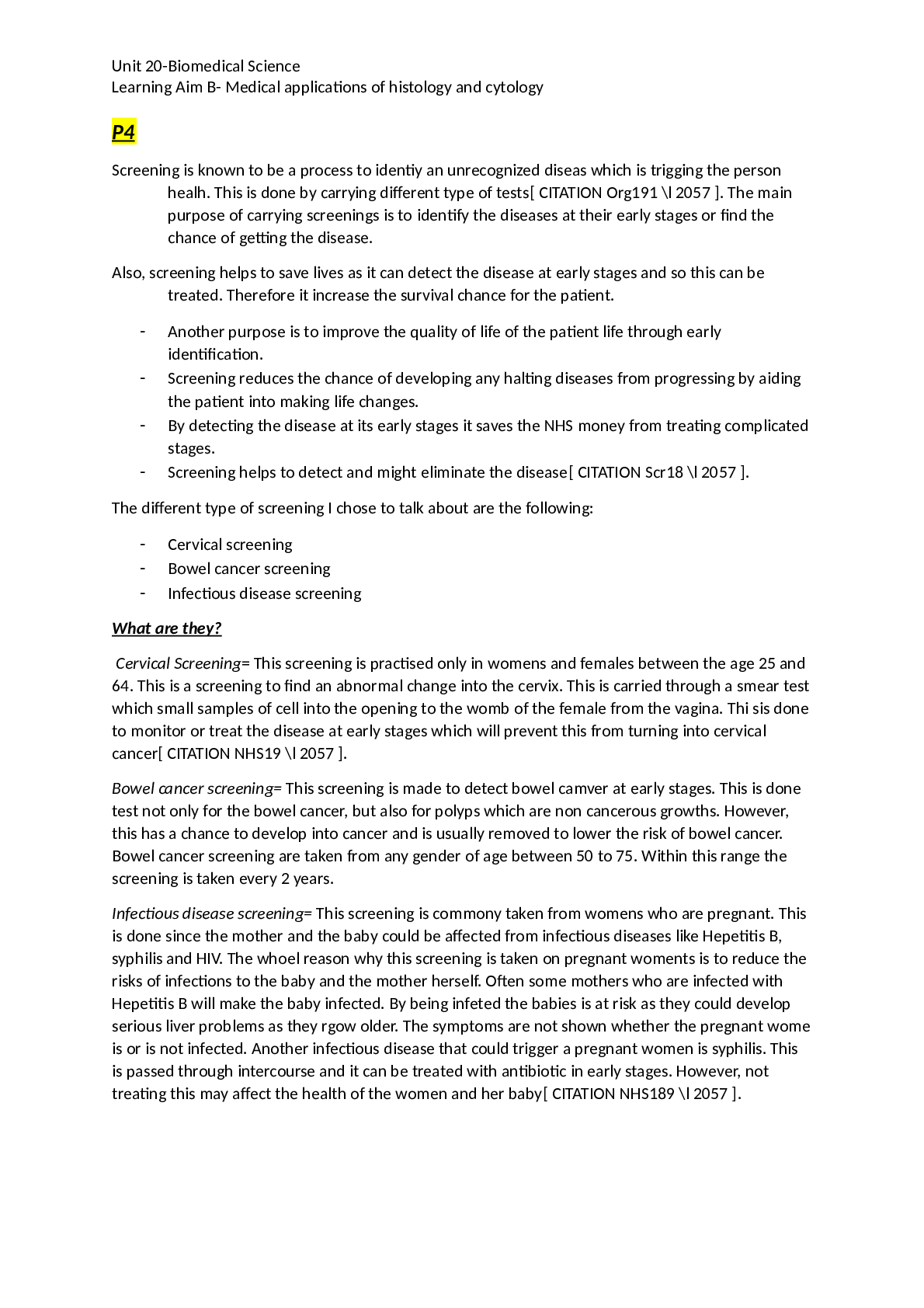

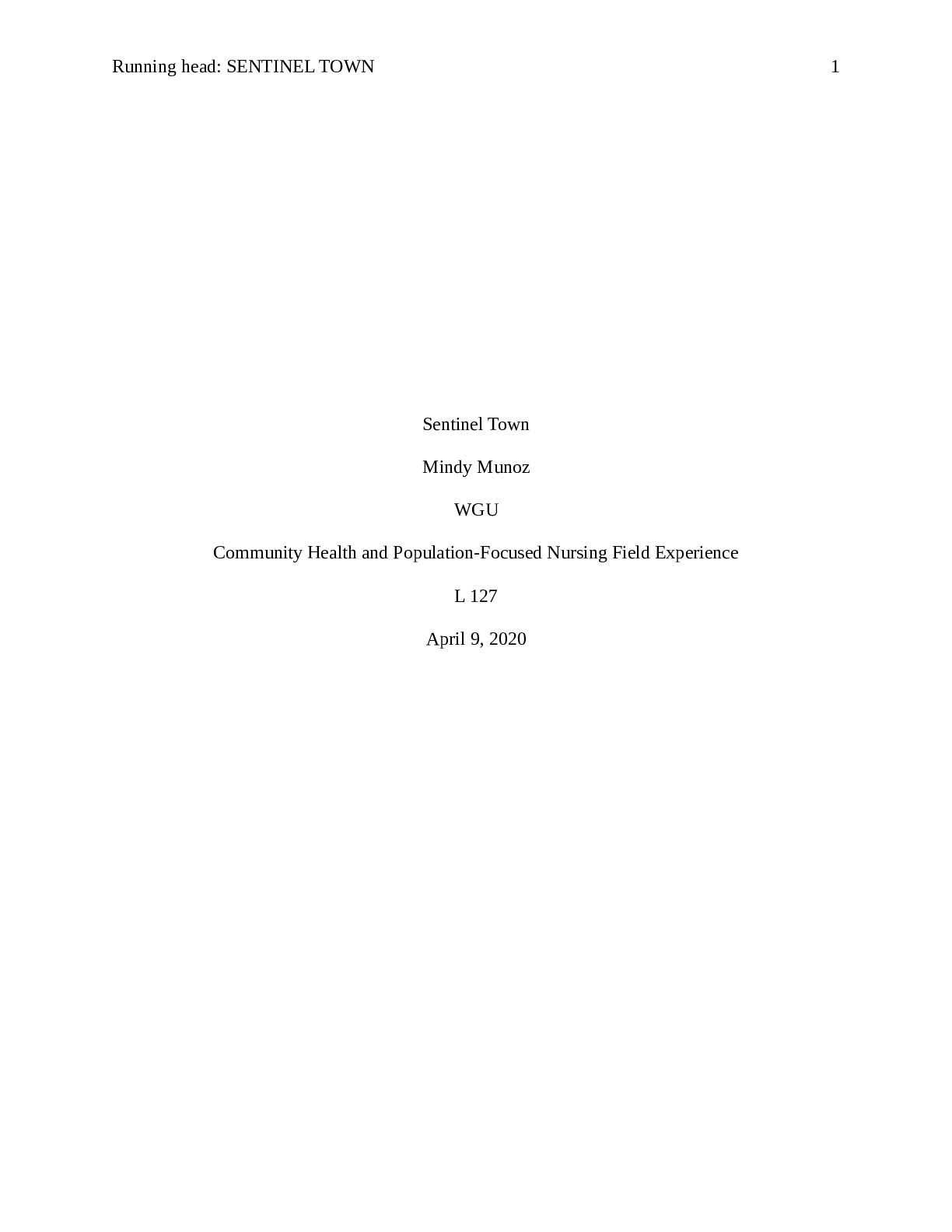
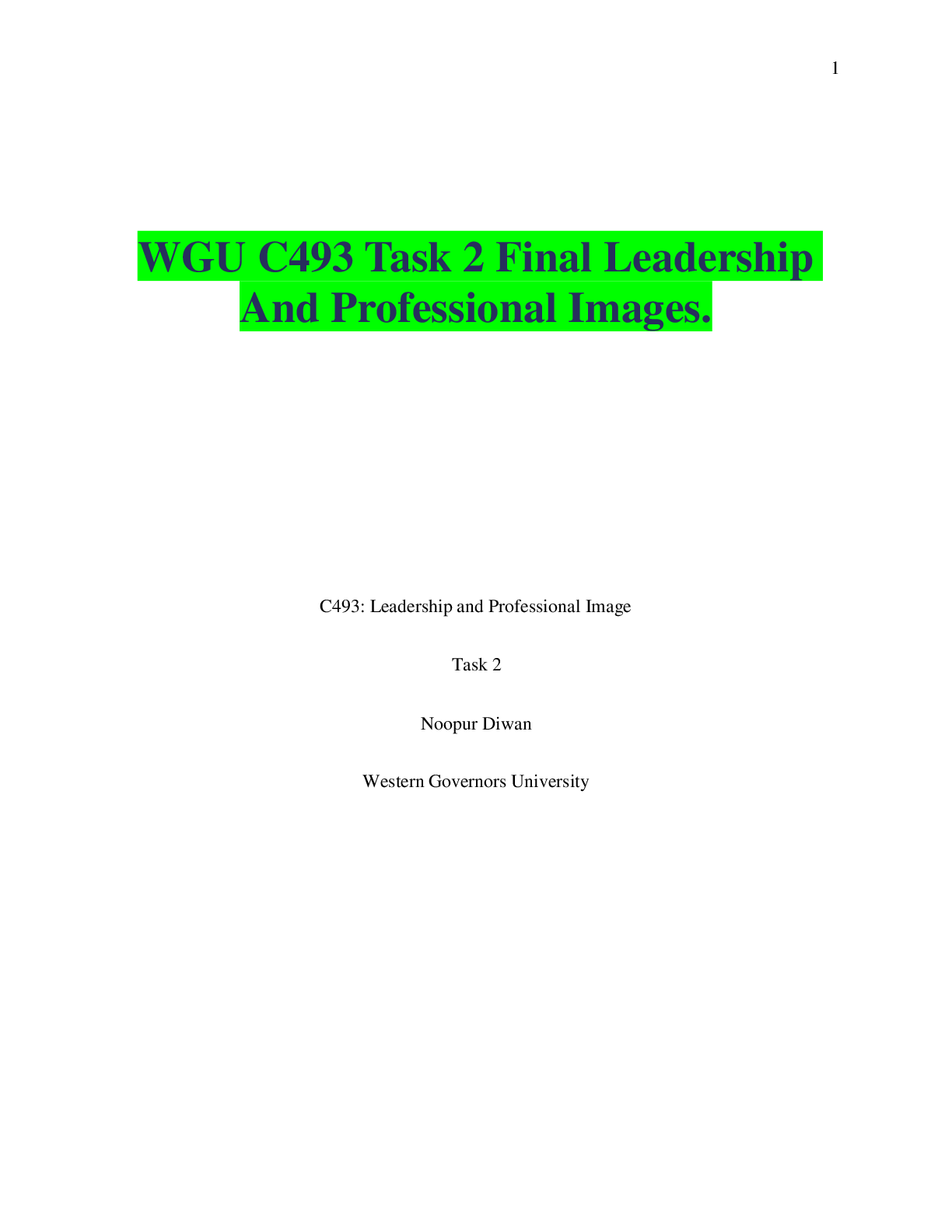
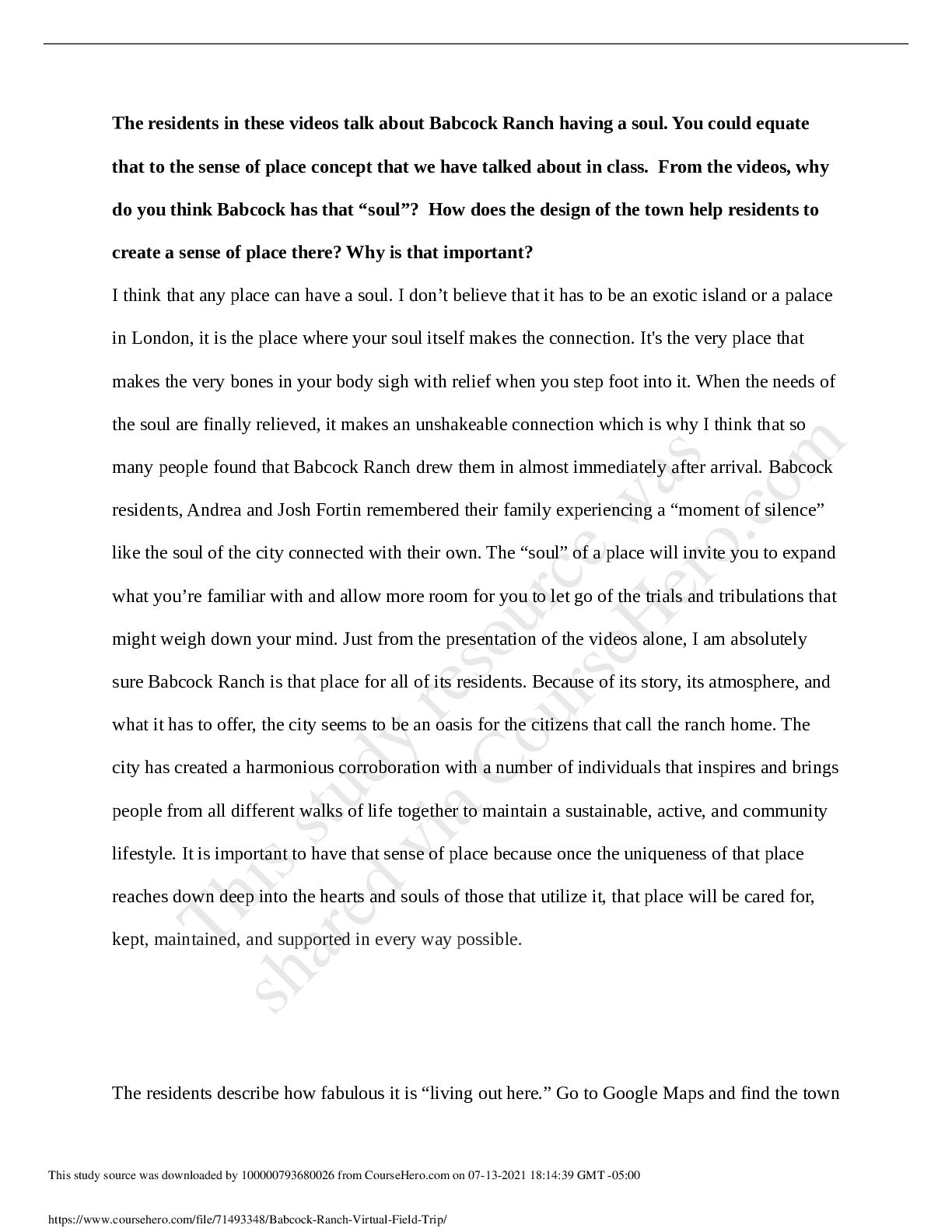



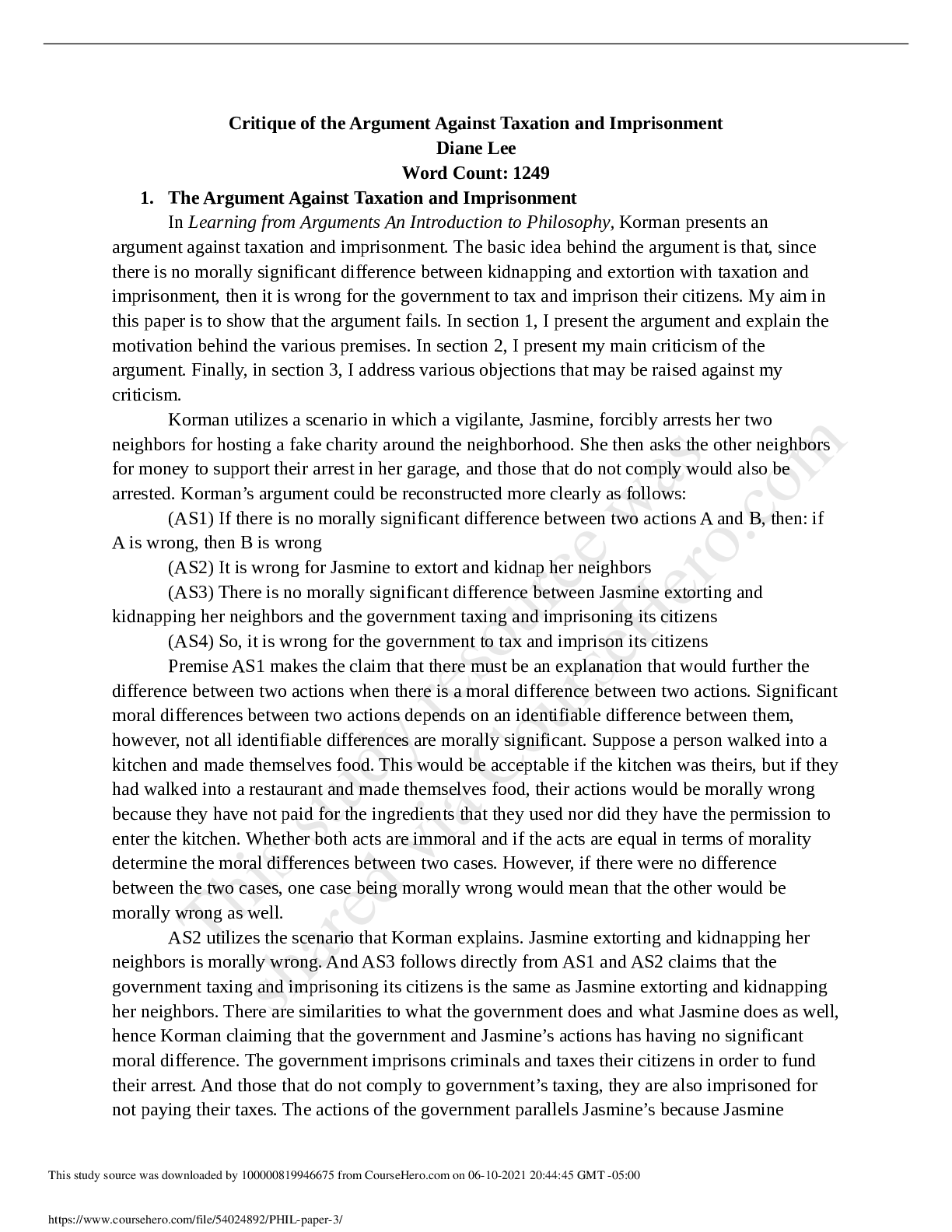
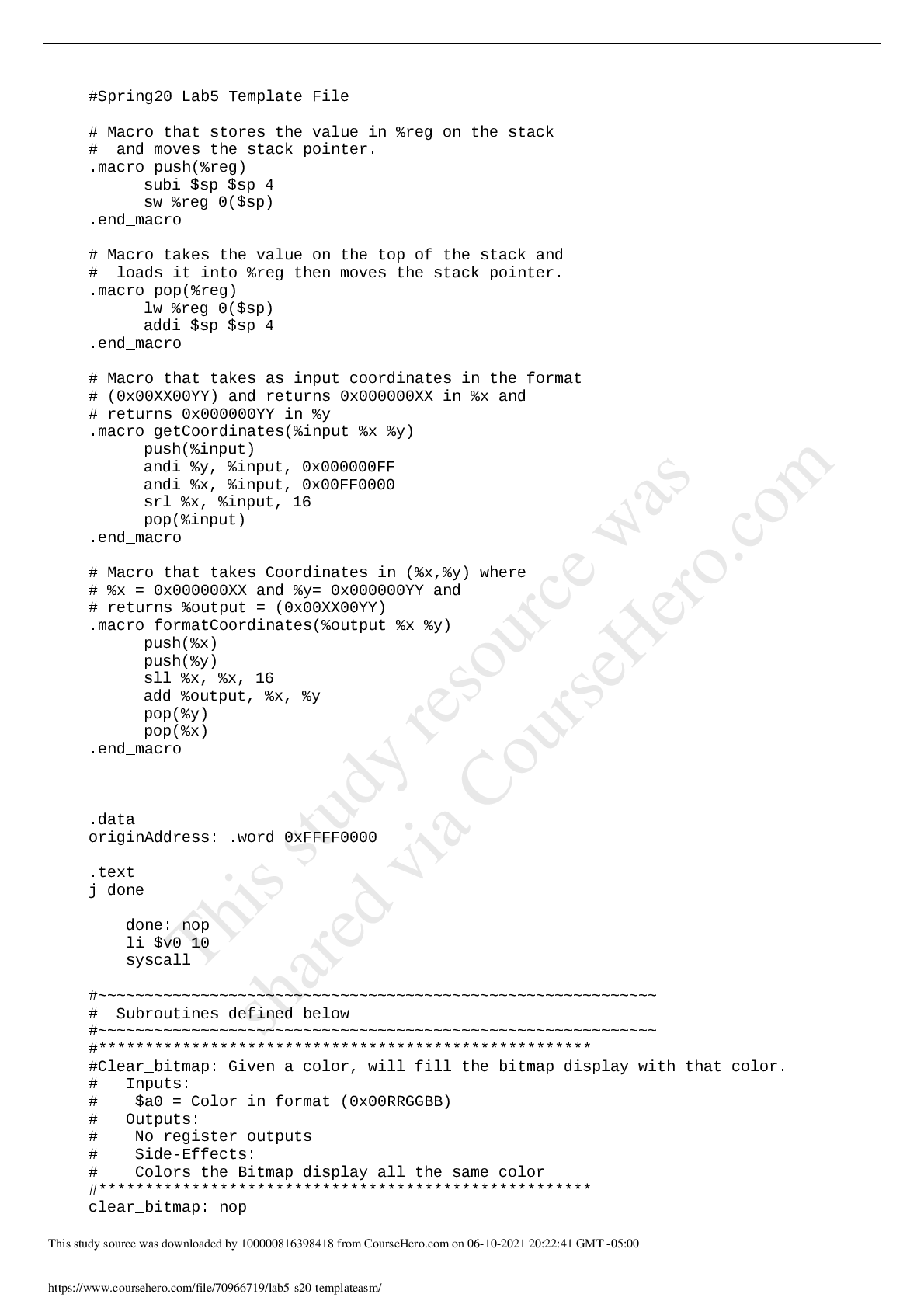
.png)







